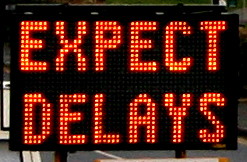Today we have a guest article written by Marie Ortiz.
Mothers make for the best preppers, plain and simple: we are always prepared for daily emergencies. We prep every day for ourselves, our children, and husbands. We make sure that every member of our family is aptly prepared for whatever the day might bring.
Part of the reason why mothers are so great at organization and planning is because we have experienced the horrors of what happens when we are unprepared. Our family relies on us for stability, and we have the means and know-how to take it to the next level: survivalism.
Listed below are some basic instructions for mothers who are interested in prepping. Note: this is only a simple outline, prepping is a lifestyle and requires intensive daily work and preparation.
Make a Plan
The first step to being a survivalist is to make a plan. As mothers, we are natural planners and preppers, so this part should be a piece of cake. It’s crucial to make a family plan in case of emergency and familiarize everyone with it. The most critical part of a disaster is how you respond to it in the first few minutes.
Make a list and create two sections: things you must buy and things you must do. For example, having clean water is essential for survival, so plan for a water softener installation at your home. Buy a fire extinguisher. In the “do” section, plan to replace your batteries in your smoke detector and teach your family members about emergency procedures.
Make an EDC
EDC stands for “Every Day Carry” and it’s what most of us moms have on our person anyway: it’s what we refer to as a “diaper bag”. While you can buy a survival kit at a store, it is much more rewarding to be able to customize your own.
A good entry-level EDC consists of things like your phone, a knife, spare cash, and a watch. To be even better prepared, include a flashlight and a multi tool. If you would like your EDC kit to be more comprehensive, include medicine, alcohol wipes, and other medical tools.
Start Couponing
You’ve seen television shows about extreme couponers. If it’s really as easy as they say it is, give it a try. It can help you stock up and get organized.
Granted, in a “bug out” situation where you must leave your home, you’ll leave most of your stash pile behind. But that doesn’t mean you can’t help your neighbor who might not be as prepared as you. In the event that you must hunker down, you’ll have enough food and supplies to last at least a year.
Prepare Your Car
If you are a mom of two or more, your minivan is probably already stocked with your everyday needs. But here’s another idea: when your car gets to ½ a tank, fill it up. You never know when an emergency situation will happen. You’ll want to have a full tank of gas.
Get in Shape
As mothers, we always hear that “it’s never too late to get in shape.” If you’ve been procrastinating on starting a workout regimen, now’s the time to get serious.
If you can’t fit in a workout routine to your schedule, implement a healthier diet for you and your family. The Paleo Diet is a good idea for survivalists. It’s also referred to as the Caveman Diet, and consists of fish, grass-fed meats, eggs, vegetables, fruits and nuts.
Start a Garden
This is a great way to learn about being self-sustention; it’s also a good way to learn the seasons for growing plants.
The more knowledge you possess about planting and growing, the better you’ll fare when you’re out in the wilderness on your own.
About Marie
Marie Ortiz is a prepared mother. She is a social media coordinator by day and blogger by night. She is a mother to two girls and is always working on new ways for them to develop and learn. She likes to share all of her discoveries along the way. When she is not perusing the Internet for inspiration, you can find her at the local farmers’ market. You can check her out at www.DIYMother.org









